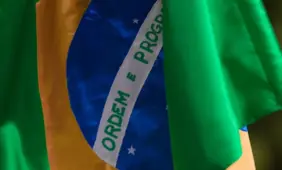POGO Regulations Enhanced through AMLC and AI Strategy

A Philippine lawmaker is advocating for the active participation of the nation's Anti-Money Laundering Council (AMLC) in the investigation of Philippine Offshore Gaming Operators (POGOs) while also highlighting the pressing need for revisions in existing financial transaction regulations to counter the potential misuse of artificial intelligence (AI).
Push for AMLC Integration
Joes Chua, a respected figure in Philippine legislative circles, has underscored the significance of involving the AMLC in the scrutiny of POGOs. Chua's proposition revolves around fortifying cybercrime investigations and enhancing monitoring audits through the expertise and resources of the AMLC.
Moreover, he emphasizes that integrating AMLC into these operations could lead to a deeper understanding of the dynamics of offshore and online gaming, equipping authorities with the knowledge necessary to identify suspicious transactions linked to money laundering, fraud, and other illicit activities.
Chua's sentiment echoes the collective call for a comprehensive response to the rising concerns surrounding the burgeoning POGO industry. As cited by the nation's news agency, Chua stated, "That knowledge and understanding would be useful in detecting suspicious transactions that could be part of money laundering, large-scale estafa (fraud), scams and other criminal activities."
Proposal to Combat AI Abuse
The lawmaker's proposition also extends to reevaluating the existing transaction thresholds mandated by gambling regulations. Currently set at PHP500,000 ($8,900) for banking transactions and PHP5 million ($89,000) for casino cash transactions, Chua contends that these thresholds could be subject to manipulation by unscrupulous entities exploiting AI and other technological advancements.
He envisions an environment where scammers and money launderers could potentially navigate through the safeguards of financial institutions and e-payment platforms with relative ease.
Chua's proposals encompass not only revising the thresholds but also extending the scope to include POGOs and mobile gaming platforms. He proposes a dynamic approach where AMLC is empowered to adapt thresholds and establish shorter reporting deadlines in response to emerging risks. This would inherently foster a more resilient financial system capable of combating the ever-evolving tactics employed by financial criminals.
Using a combo of AI and other technologies, scammers and money launderers could be able to easily evade the safeguards and monitoring of banks, e-payment apps, and the AMLC.
As a testament to his commitment, Chua expresses his readiness to draft and propose legislation to enable the necessary adjustments and amendments. His proactive approach serves as a testament to the Philippines' dedication to staying at the forefront of financial security and regulatory advancements.
Related: PAGCOR Unveils New Offshore Gaming Regulations.
The intersection of technology, finance, and security presents complex challenges that require innovative solutions. As the nation's leaders deliberate on Chua's recommendations, the future trajectory of Philippine financial regulation and its battle against financial crime hangs in the balance.
More Regulation News
RELATED TOPICS: Regulation








Review this New Post
Leave a Comment
User Comments
Comments for POGO Regulations Enhanced through AMLC and AI Strategy